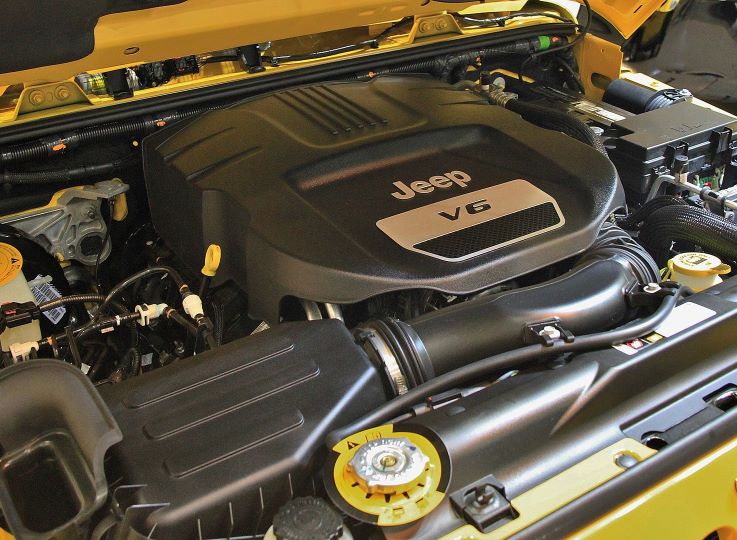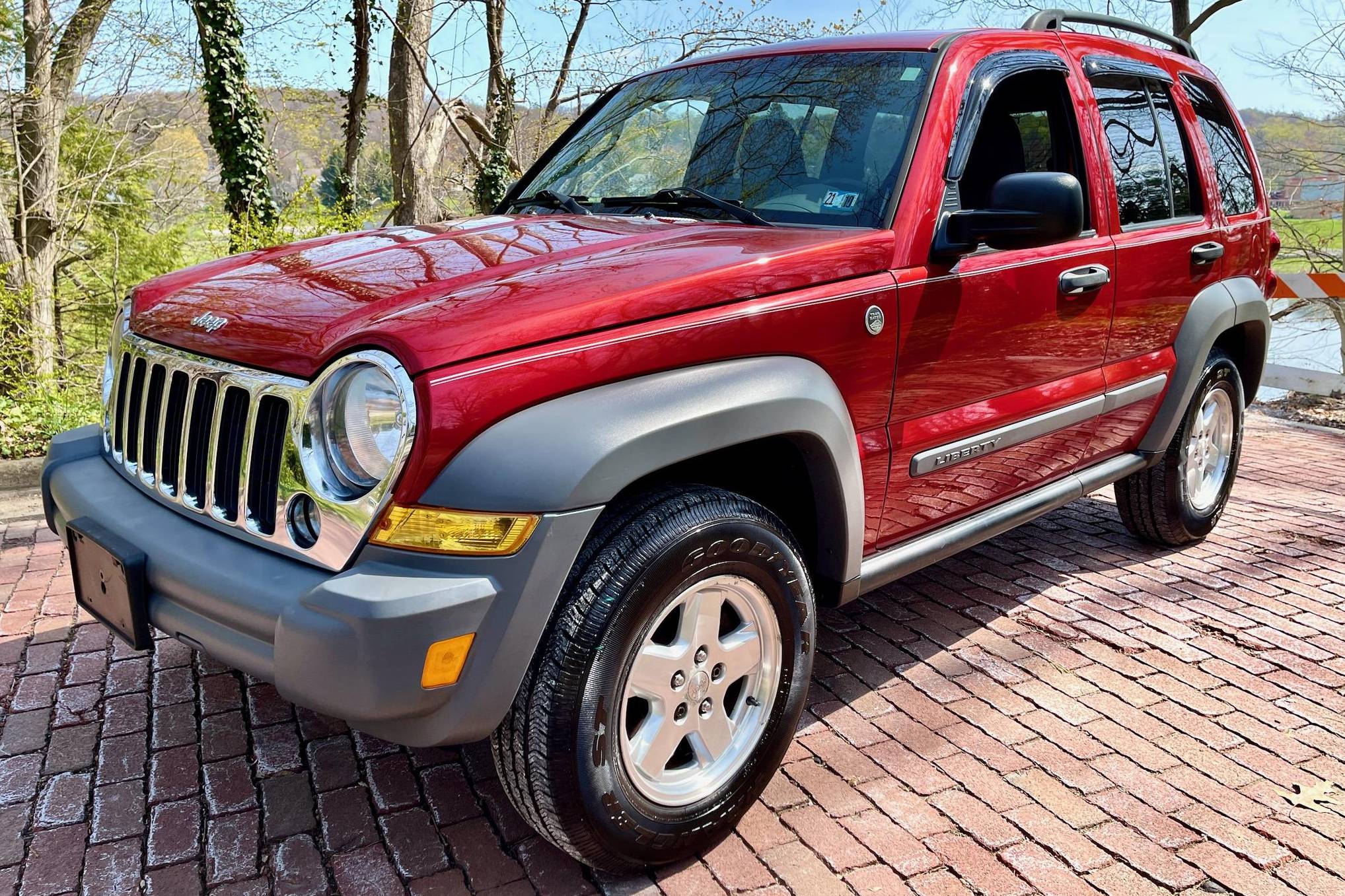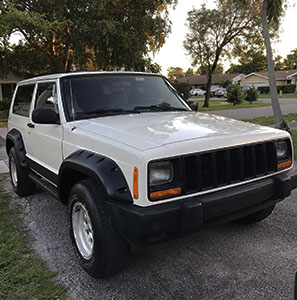Used Jeep Liberty Engines For Sale: Reviving Your Beloved SUV sale.truckstrend.com
The Jeep Liberty, a compact SUV produced from 2002 to 2012, carved out a niche for itself with its rugged appeal, respectable off-road capabilities, and daily driving practicality. Many Liberty owners cherish their vehicles, often forming a strong bond with their reliable (or sometimes, notoriously quirky) companions. However, like all mechanical marvels, the heart of the beast – its engine – can eventually give out. When faced with a major engine failure, the prospect of an expensive repair or, worse, having to part with a beloved vehicle can be daunting. This is where the market for Used Jeep Liberty Engines For Sale becomes a beacon of hope, offering a cost-effective and environmentally friendly solution to get your cherished SUV back on the road.
This comprehensive guide will navigate the intricate world of acquiring a used engine for your Jeep Liberty, providing you with the knowledge, tips, and resources needed to make an informed decision and extend the life of your vehicle without breaking the bank.
Used Jeep Liberty Engines For Sale: Reviving Your Beloved SUV
Understanding Your Jeep Liberty’s Engine Needs
Before diving into the market for a used engine, it’s crucial to understand the specific engine types found in the Jeep Liberty and common issues that might necessitate a replacement. The Liberty primarily featured two gasoline engine options:
- 2.4L PowerTech I4 Engine: Found in earlier models (2002-2005), this inline-four engine offered decent fuel economy but was often considered underpowered for the Liberty’s weight. Common issues included oil leaks, timing chain wear, and occasional head gasket failures.
- 3.7L PowerTech V6 Engine: This was the more popular and widely available engine, powering most Liberty models from 2002 to 2012. While generally robust, it was known for potential issues such as excessive oil consumption, valve seat recession (especially in earlier models), timing chain issues, and occasionally, cylinder head problems or misfires due to various sensor failures.
Identifying which engine your specific Liberty has is paramount. This can usually be found on your vehicle’s VIN (Vehicle Identification Number) sticker (typically on the driver’s side door jamb) or through an online VIN decoder. Knowing your exact engine type, year, and transmission pairing (e.g., 3.7L V6 with 42RLE automatic transmission) is the first step toward a successful search.
The decision to replace an engine often stems from severe problems like a thrown rod, cracked block, catastrophic overheating, or consistent, unresolvable misfires that indicate internal damage. While minor repairs can be costly, a full engine replacement with a used unit often makes financial sense compared to a brand-new crate engine or extensive rebuilding.

Benefits of Opting for a Used Jeep Liberty Engine
Choosing a used engine over a new or extensively rebuilt one comes with several compelling advantages:
- Significant Cost Savings: This is by far the biggest draw. A used engine can be thousands of dollars cheaper than a new one, making a seemingly impossible repair affordable. This allows you to keep your vehicle without the burden of a new car payment.
- Environmental Friendliness: Reusing an existing engine contributes to a circular economy, reducing waste and the demand for new manufacturing, which has a positive environmental impact.
- Availability: For a vehicle like the Jeep Liberty, which has been out of production for over a decade, finding a brand-new engine can be challenging or even impossible. The used parts market, fueled by salvage vehicles, offers a robust supply.
- Faster Turnaround: Once sourced, a used engine can often be installed relatively quickly, minimizing your vehicle’s downtime compared to waiting for a new engine order or a complex rebuild.
- Original Fit and Performance: A used engine, being an OEM part, ensures perfect compatibility and retains the original vehicle’s performance characteristics.

Types of Used Engines Available
When searching for a used Jeep Liberty engine, you’ll encounter a few categories:
- Standard Used Engines: These are engines pulled from salvage vehicles (often due to accidents) that were running prior to being dismantled. They are typically inspected, tested (e.g., compression, oil pressure), and cleaned before sale. Their mileage can vary significantly.
- Low Mileage Used Engines: A premium variant of standard used engines, these are sourced from vehicles with exceptionally low odometer readings, often from vehicles that were totaled early in their life. They command a higher price but offer potentially greater longevity.
- Remanufactured/Rebuilt Engines: While not strictly "used," these are often offered by used engine suppliers as an alternative. A remanufactured engine has been completely disassembled, inspected, machined to new specifications, and reassembled with new or reconditioned parts. They come with a higher price tag but typically offer a more extensive warranty and greater peace of mind.
- JDM (Japanese Domestic Market) Engines: Less common for American models like the Liberty, but sometimes cross-compatible engines might be available. These are engines imported from Japan, often characterized by lower mileage due to stricter inspection laws and shorter vehicle lifespans in Japan. Always verify compatibility meticulously.
Key Considerations Before Buying
A successful used engine purchase hinges on careful consideration of several critical factors:
- Compatibility: This cannot be stressed enough. Ensure the engine’s year, model, and engine code (e.g., 3.7L V6) precisely match your vehicle’s specifications. Factors like 2WD vs. 4WD and transmission type can also subtly affect engine mounts or sensor locations. Always cross-reference with your vehicle’s VIN.
- Mileage: While lower mileage is generally preferable, it’s not the only indicator of an engine’s health. An engine with higher mileage that has been meticulously maintained can outperform a lower-mileage engine that was neglected.
- Warranty: This is your strongest safeguard. Inquire about the warranty length (e.g., 30-day, 90-day, 6-month, 1-year) and what it covers. Does it cover parts only, or does it include labor? What are the conditions for voiding the warranty? Get all warranty details in writing.
- Source/Supplier Reputation: Purchase from reputable dealers with a proven track record. Check online reviews, Better Business Bureau ratings, and industry certifications. A good supplier will be transparent about their testing procedures and offer clear return policies.
- Inspection: If possible, physically inspect the engine. Look for signs of severe leaks, cracks, damage from impact, or obvious corrosion. Even if you can’t inspect it yourself, ensure the seller provides detailed photos and is willing to answer specific questions about its condition.
- Shipping & Handling: Factor in shipping costs, which can be substantial for an engine. Inquire about shipping insurance and estimated delivery times.
- Core Charge: Many sellers charge a "core charge" (a deposit) which is refunded when you return your old engine (the "core"). Understand the core return policy and deadlines to ensure you get your deposit back.
Where to Find Used Jeep Liberty Engines For Sale
The market for used auto parts is vast. Here are the most common avenues:
- Specialized Online Used Auto Part Dealers: Companies like LKQ, PartsHotline, and other national networks specialize in salvage parts. They often have extensive inventories, perform rigorous testing, and offer warranties. Websites like Car-Part.com allow you to search multiple salvage yards simultaneously.
- Local Junkyards/Salvage Yards: A hands-on approach. You might find a good deal and can often inspect the engine yourself. However, warranties might be shorter or non-existent, and selection can be limited.
- Online Marketplaces: eBay and Craigslist can list individual sellers or smaller yards. Exercise extreme caution here, verify seller credibility, and prioritize local pickup if possible to inspect the engine. Avoid sellers unwilling to provide detailed information or photos.
- Engine Brokers: These companies act as intermediaries, sourcing engines from various suppliers on your behalf. They can often find specific engines but may add a commission to the price.
The Buying Process: A Step-by-Step Guide
- Identify Your Engine: Confirm your Jeep Liberty’s exact engine code, year, and transmission type using your VIN.
- Research Suppliers: Start with reputable online dealers and local salvage yards.
- Request Quotes: Contact multiple suppliers. Provide your exact engine specifications and inquire about mileage, condition, warranty, shipping, and core charge.
- Verify Compatibility: Double-check all details provided by the seller against your vehicle’s requirements. A mismatch can lead to significant headaches.
- Understand Warranty & Return Policy: Read the fine print! Ensure you’re comfortable with the terms, especially regarding installation and potential issues.
- Arrange Purchase & Shipping: Once satisfied, complete the purchase. Ensure you receive an invoice detailing the engine, price, warranty, and return policy.
- Professional Installation: While some experienced DIY mechanics might attempt it, professional installation by a certified mechanic is highly recommended. They have the right tools, expertise, and can often identify potential issues before or during installation.
- Post-Installation Checks: After installation, ensure all fluids are new, filters are replaced, and a thorough check for leaks or unusual noises is performed.
Potential Challenges and Solutions
- Finding the Right Engine: The sheer variety can be overwhelming. Solution: Be precise with your engine specifications, use online search tools effectively, and don’t hesitate to call suppliers directly.
- Warranty Disputes: If the engine fails within the warranty period. Solution: Keep all documentation (invoice, warranty terms, installation records). Follow the seller’s troubleshooting steps precisely. If professionally installed, your mechanic’s documentation will be crucial.
- Engine Condition Issues: Receiving an engine that doesn’t meet expectations. Solution: Purchase from reputable sellers with clear return policies. Take photos upon arrival before installation.
- Installation Complexities: Engine swaps are not trivial. Solution: Budget for professional installation. If DIY, ensure you have the necessary tools, experience, and a comprehensive service manual.
- Hidden Costs: Unexpected expenses after the initial purchase. Solution: Factor in shipping, core charge, installation labor, new fluids (oil, coolant), new gaskets, spark plugs, and potentially a new timing chain/belt kit if not included and recommended.
Tips for a Successful Purchase
- Always Verify with VIN: Provide your VIN to the seller. A good seller will use it to cross-reference compatibility.
- Get Everything in Writing: All agreements, especially regarding warranty and return policies, should be documented.
- Don’t Rush: Take your time to research, compare prices, and understand terms.
- Consider a Pre-Installation Check: Have your mechanic inspect the used engine upon arrival, before installation, to catch any obvious issues.
- Budget for Ancillary Parts: Assume you’ll need new gaskets, seals, spark plugs, filters, and fluids. It’s good practice to replace these components on a "new-to-you" engine.
- Ask About Accessories: Clarify if the engine comes as a "long block" (engine block, cylinder heads, camshafts, crankshaft) or if it includes accessories like the intake manifold, alternator, power steering pump, or A/C compressor. Typically, only the long block is included.
Price Table: Estimated Used Jeep Liberty Engine Costs
Please note: These are estimated price ranges and can vary significantly based on the engine’s exact condition, mileage, warranty, supplier, and current market demand. Shipping costs are extra.
| Engine Type | Jeep Liberty Year Range | Estimated Mileage Range | Condition/Warranty | Estimated Price Range (USD) | Notes |
|---|---|---|---|---|---|
| 2.4L I4 | 2002-2005 | 70,000 – 150,000 | Good Used (90-day) | $800 – $1,500 | Often includes basic accessories. Verify timing chain condition. |
| < 70,000 | Low Mileage (6-month) | $1,200 – $2,000 | Premium for lower wear and tear. | ||
| 3.7L V6 | 2002-2007 | 80,000 – 160,000 | Good Used (90-day) | $900 – $1,800 | Most common option. Check for oil consumption history if possible. |
| < 80,000 | Low Mileage (6-month) | $1,500 – $2,500 | Higher demand, so prices can be firmer. | ||
| 3.7L V6 | 2008-2012 | 60,000 – 140,000 | Good Used (90-day) | $1,000 – $2,000 | Later models often have fewer reported valve seat issues. |
| < 60,000 | Low Mileage (6-month) | $1,800 – $2,800+ | Best chance for a long-lasting replacement. | ||
| Remanufactured | All Years (3.7L V6) | 0 (Rebuilt) | 1-3 Year Warranty | $2,500 – $4,500+ | Best reliability, higher cost. May require core return or separate core charge. |
Note: Installation labor (typically $1,000 – $2,500 depending on region and shop) and shipping costs are separate from these engine prices.
Frequently Asked Questions (FAQ)
Q1: How do I know which engine my Jeep Liberty has?
A1: Check your VIN (Vehicle Identification Number). It’s typically on a sticker on the driver’s side door jamb or dashboard. You can use an online VIN decoder or consult your owner’s manual to determine your exact engine code (e.g., 2.4L, 3.7L).
Q2: Is it safe to buy a used engine online?
A2: Yes, it can be, provided you purchase from reputable online suppliers with clear policies, good reviews, and robust warranties. Always verify their legitimacy and read customer feedback.
Q3: What’s the typical lifespan of a used engine?
A3: It varies greatly. A well-maintained used engine with 80,000 miles could easily last another 50,000 to 100,000+ miles. It depends on its previous maintenance, the installation quality, and your future maintenance habits.
Q4: Do used engines come with accessories like the alternator or starter?
A4: Typically, no. Most used engines are sold as "long blocks," meaning the engine block, cylinder heads, and internal components. You’ll usually need to transfer your existing accessories (alternator, starter, intake manifold, exhaust manifold, sensors, etc.) or purchase new ones. Always confirm with the seller what is included.
Q5: What is a "core charge"?
A5: A core charge is a refundable deposit added to the price of a used engine (or other rebuildable parts). It incentivizes you to return your old, failed engine (the "core") to the seller, allowing them to rebuild or recycle it. Once the core is returned, the charge is refunded.
Q6: Can I install a used engine myself?
A6: While possible for experienced mechanics with the right tools and knowledge, engine swaps are complex and time-consuming. It’s generally recommended to have a certified mechanic perform the installation to ensure proper function and validate any warranty.
Q7: What should I do before installing a used engine?
A7: It’s highly recommended to replace key components:
- All fluids (oil, coolant)
- Oil filter, air filter
- Spark plugs
- Thermostat
- Any external gaskets (valve cover, oil pan, intake manifold, exhaust manifold) that are easily accessible
- Inspect seals (front/rear main seals) and consider replacement if there’s any sign of wear.
- Consider replacing the water pump and timing chain/belt kit (if applicable and accessible) for preventive maintenance.
Conclusion
For many Jeep Liberty owners, the vehicle represents more than just transportation; it’s a part of their lifestyle. When faced with engine failure, the prospect of purchasing a Used Jeep Liberty Engine For Sale offers a practical, affordable, and sustainable path to extend the life of your cherished SUV. By understanding the types of engines available, diligently researching suppliers, prioritizing warranty and compatibility, and preparing for the installation process, you can confidently navigate the market. With an informed approach, you can breathe new life into your Jeep Liberty, ensuring it continues to conquer trails and daily commutes for years to come.



